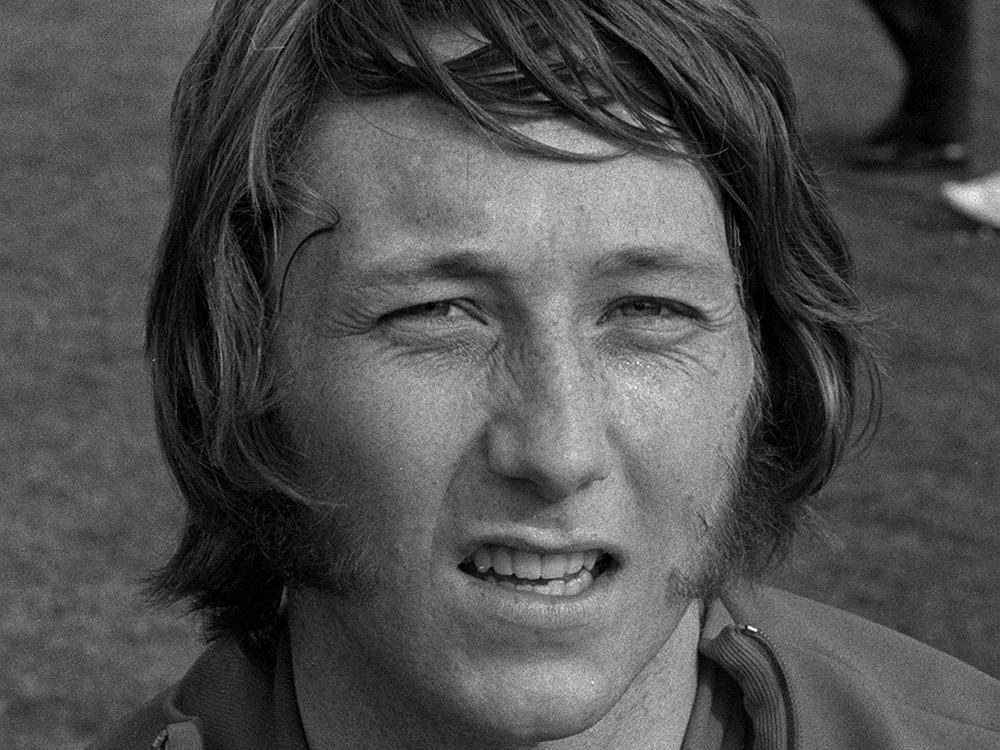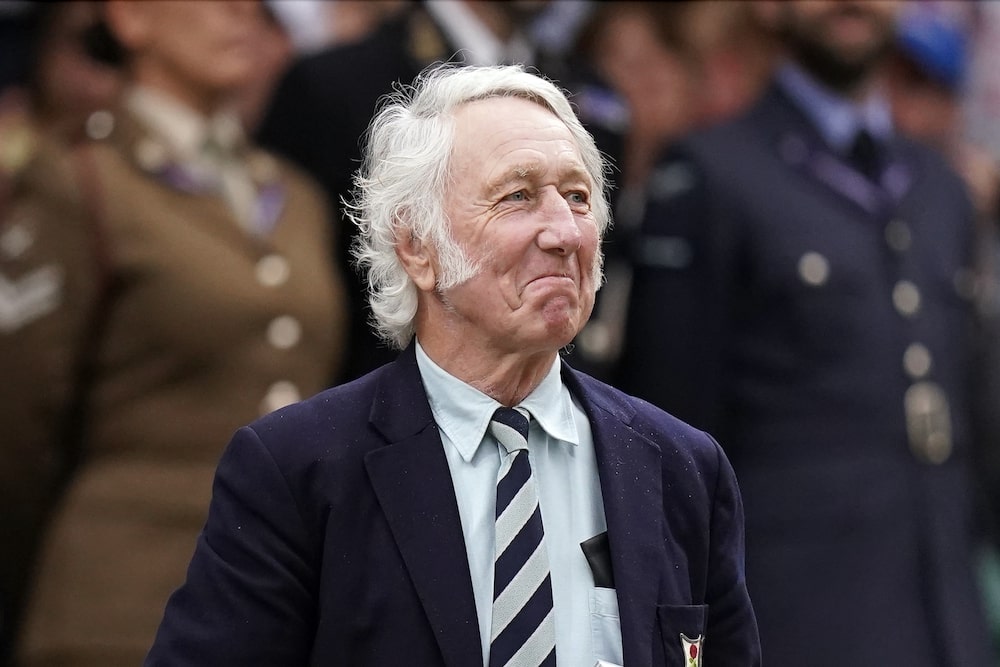No ordinary man: remembering Welsh rugby icon JPR Williams

Simon Thomas
Amid all the tributes paid to JPR Williams over the past day, one comment, in particular, struck a chord with me.
It didn’t come from a former team-mate or an opponent. It wasn’t from a pundit, journalist or commentator.
Instead, it was a member of the public responding to my social media post about the great man’s sad passing.
It read simply: “I don’t like rugby, I never watch it, but I know who JPR Williams is.”
Transcended
It was a comment that spoke volumes for me and served as a timely reminder that this was a man who transcended his sport.
Moreover, he did it via just three letters.
Few people in life are instantly identifiable simply by their initials.
You had the American presidents – JFK, LBJ and FDR.
Then there were the authors – DH Lawrence, HG Wells, TS Eliot, AA Milne, right up to JK Rowling.
From the world of entertainment and sport you had the likes of WC Fields, BB King and WG Grace.
And then you had John Peter Rhys Williams – JPR.
Say the initials and an image instantly comes to mind – the sideburns, the flowing hair, the headband.
What you also think of is a player who was as tough as teak, simply indestructible.
In part, that’s why his passing at the age of 74 has come as such a shock to so many. It’s clear from the reaction that it has really affected people and I include myself in that bracket.
I’m of an age where I was fortunate enough to see JPR play in the flesh, as it were.
Unforgettable
Those first-hand memories from the latter years of his career are interspersed with those timeless clips captured on The Crowning Years video, along with footage from other sources.
Together, they throw up a succession of unforgettable moments.
There were his tries for Wales against England, a team he never lost to in 11 meetings.
There was the drop goal he landed from 45 metres in Auckland to seal the historic 1971 Lions series victory over the All Blacks.
There was the part he played in THAT try from Gareth Edwards in the Barbarians’ 1973 victory over New Zealand – getting the ball away despite being tackled round the neck – not to mention his own equally crucial touchdown in that game.
Then there was the bravery, the fearlessness, the rock-like presence at full-back.
You had him running some 40 metres to stand shoulder to shoulder with his forwards during the Battle of Boet Erasmus on the 1974 Lions tour of South Africa.
Then there was his tackle on French wing Jean-Francois Gourdon in the 1976 Five Nations title decider in Cardiff. It saved a try and it sealed the Grand Slam, with his clench-fisted salute after barging Gourdon into touch at the corner flag summing up his warrior spirit.
That was illustrated once again two years later when he returned to the field for Bridgend against New Zealand after his own father Peter had inserted 30 stitches in a gory facial wound caused by a Kiwi boot.
His combative edge even enabled him to pack down as a Test flanker on Wales’ injury-ravaged 1978 tour of Australia. This was no ordinary player, no ordinary man.
The record speaks for itself – 55 caps for Wales, a succession of Grand Slams and Triple Crowns, captain of his country and eight Lions Tests on two triumphant tours. And all this while holding down a job as a consultant surgeon. As a say, no ordinary man.
As well as having watched him play, I also was fortunate enough to deal with JPR a fair bit in his post-playing days in my work as a journalist, getting his forthright opinions on various matters and I always found him very amenable and helpful.

The last time I saw him was around 12 months ago when our paths crossed twice in quick succession – first at the launch of the BBC’s Slammed series on the 1970s and then at the dinner to mark the 50th anniversary of the Gareth Edwards Baa-Baas try.
With hindsight, I am so glad I took that opportunity to sit down with him for a life and times interview – and what a life it was and what times he gave us.
Bridgend
Born in Bridgend, the son of two GPS, he began his senior rugby career at the Brewery Field where his father was president and club doctor.
After attending Millfield School in Somerset, he moved up to London to study medicine at St Mary’s in Paddington.
That saw him link up with London Welsh, which is where, in 1968, he first came on the radar of John Taylor, the Wales and Lions flanker. It was the beginning of a friendship that was to span more than half a century.
I will let John take up the story from here.
“We were playing Richmond at the Athletic Ground. I walked into the changing room and there is this kid stripping off in the corner,” he recalls.
“I was thinking ‘What the hell is going on here?’
“Then John ‘Syd’ Dawes turned to me and said ‘This is Wales’ next full-back. Come and meet JPR Williams’.
“That was the start of it. I had never set eyes on him before. Three months later, as Syd had predicted, he was playing for Wales and the rest is history.”
Revolutionised
It’s often said that JPR revolutionised full-back play and, as far as Taylor is concerned, that is spot on.
“I think people sometimes say it a bit glibly, but it’s absolutely true,” he insists.
“Before him, full-backs were very much kickers. They were solid at the back, they would catch and clear away to touch.
“But JPR would join the line as an attacking full-back even before that was encouraged by the change in the law about kicking to touch outside your 22.
“His first instinct, his first reaction, his first everything was to run with the ball and you know how physical he was. He was a big lump and he used it.
“He was also a supreme footballer. He understood everything. His rugby brain was very sharp. He was terrific.”
Taylor witnessed JPR’s selfless courage at first hand on numerous occasions.
“For a doctor, he was mad!” he quips, with a chuckle.
“I say that in the fondest way possible.
“He wasn’t a headbanger in the way some players are before a match.
“But he truly believed he was absolutely invincible. He really did and he pretty much was.
“He was as hard as nails. He would get into a collision situation with anybody and I can not remember when he didn’t come out on top. He was a very powerful player and this competitive spirit he had was likely nothing else I’ve ever seen and it wasn’t just on the rugby field.
“I can remember him playing squash one day at Cardiff squash club. This would have been 20 to 25 years ago, so he would have been 50ish.
“He was taking on the Welsh junior champion who was much more skilful. The first set, this young fella walked away with it, but then, after that, you could feel JPR digging in and he just started retrieving absolutely everything from impossible situations.
“He was match point down two or three times in the second set, but survived, won it and then walked away with the third set.
“That was absolutely typical of him. I played tennis with him a few times and he didn’t have the elegance of some players, but his never-say-die determination to retrieve everything and anything really set him apart.”
Driven
As Taylor explains, JPR was very much a driven individual in every sense.
“His ability for hard work was incredible,” he says.
“He would have all his text books out and be doing his medical studies in the hotel room before an international.
“But he was also a real fun animal and loved nothing better than the crack with the boys.”
As for his long friendship with JPR, Taylor concludes: “He became a very big part of my life. I was his best man. We were blood brothers.”
My own final memory of JPR stems from that last conversation I had with him 12 months ago.
Famously, he was the British number one tennis player as a junior and had the opportunity to become a professional, a move that could have brought him riches on the court.
But when I asked him whether he would have done anything differently during his sporting life, his answer was an emphatic ‘No’.
This was a man with no regrets, a man who had lived his life to the full on and off the field and we are all so grateful for that.
The word legend is chucked around far too often in sport, but never was it more appropriate than in the case of JPR Williams.
Support our Nation today
For the price of a cup of coffee a month you can help us create an independent, not-for-profit, national news service for the people of Wales, by the people of Wales.






This was a memorable tribute to JPR. Diolch!
A great tribute to a great man.
Excellent epitaph, well researched and written…my Dad Bob John used to follow the 70s Welsh team around, he often attended club matches…he’s got a few stories to tell about those days. He hasn’t been well lately, if anyone used to know my Dad maybe try to get in touch. Diolch